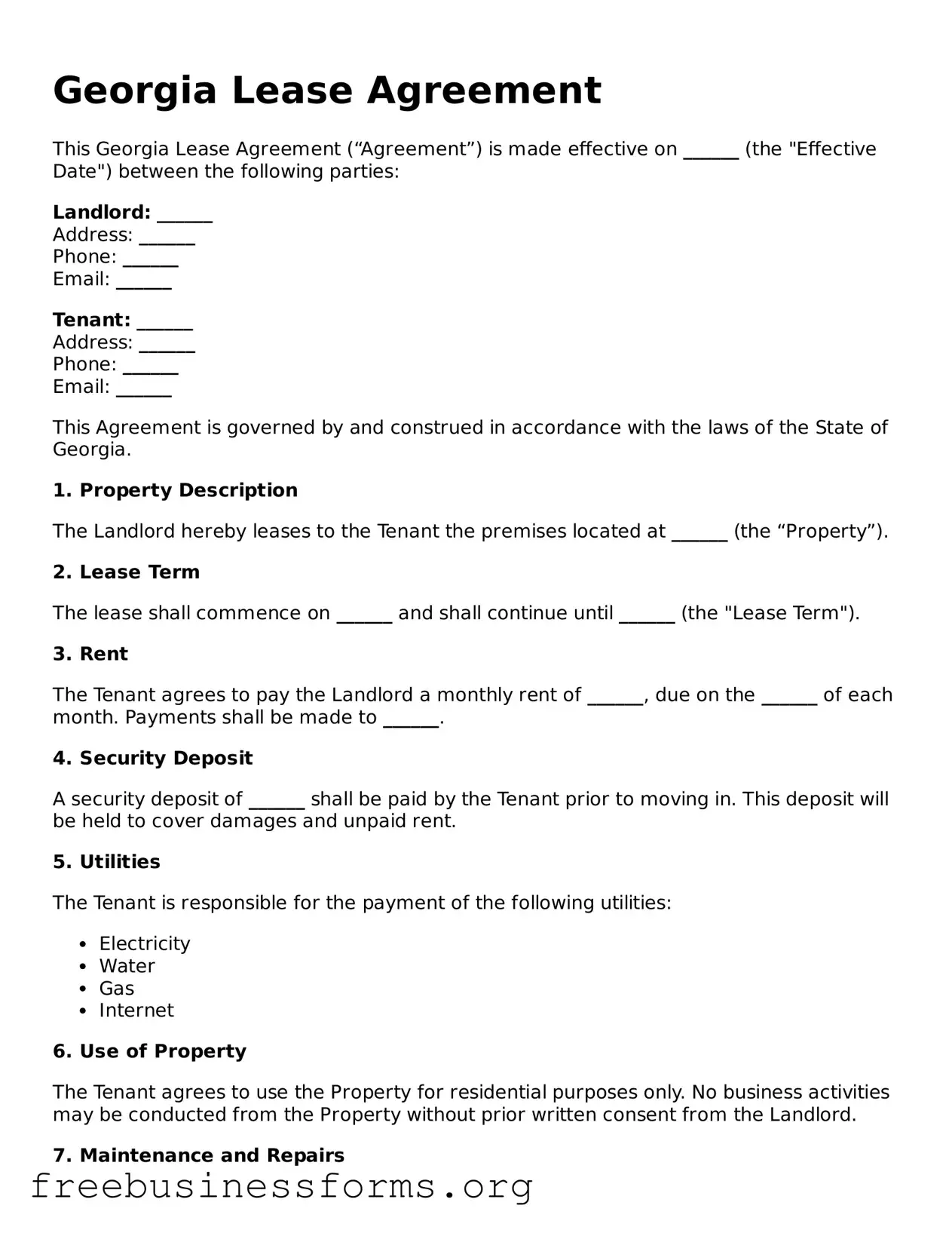Blank Lease Agreement Template for Georgia
The Georgia Lease Agreement form is a legal document that outlines the terms and conditions between a landlord and a tenant for renting residential or commercial property in Georgia. This agreement ensures that both parties understand their rights and responsibilities, providing a clear framework for the rental relationship. By using this form, landlords and tenants can avoid misunderstandings and protect their interests throughout the lease term.
Open Form Here

Blank Lease Agreement Template for Georgia
Open Form Here

Open Form Here
or
↓ PDF File
Quickly complete this form online
Complete your Lease Agreement online quickly — edit, save, download.